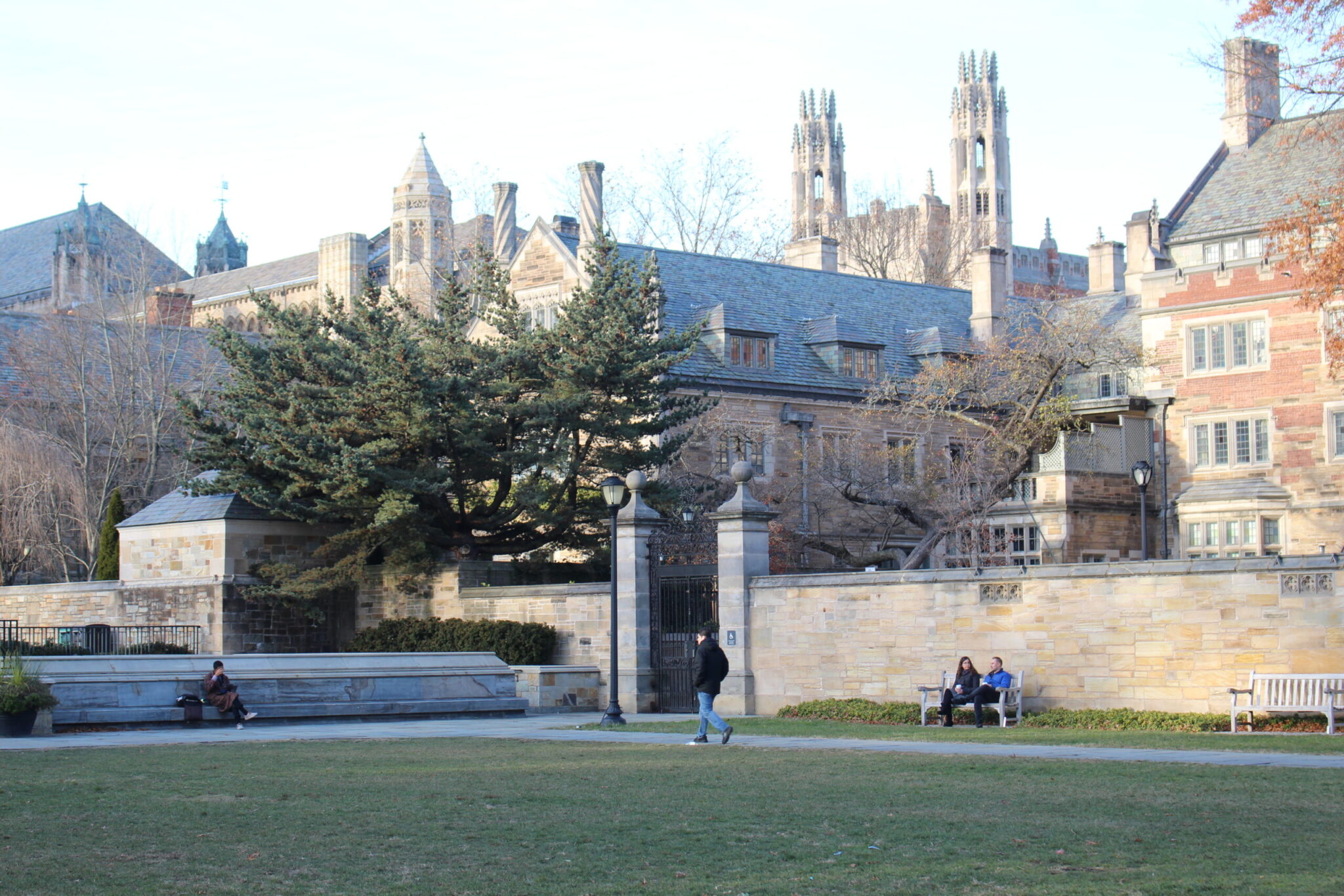Windham-Campbell Festival welcomes winning writers to campus
The annual literary award festival honoring eight fiction, nonfiction, drama and poetry prize recipients began on Tuesday and offers free events on campus through Friday to celebrate the artists’ work.

Contributing Photographer, Toia Conde Rodrigues Da Cunha
Eight recipients of the 11th annual Donald Windham-Sandy J. Campbell Literature Prizes gathered on Yale’s campus this week to share their art in public talks and readings, sample New Haven food trucks and take part in a four-day celebration of the written word.
Staffed by Yale Conferences and Events and a volunteer corps of approximately 20 Yale students, the festival kicked off its programming with a welcome party in its Cross Campus tent at 5 p.m. on Tuesday. The festival’s keynote prize ceremony, headlined by American author Greil Marcus, took place in the Robert L. McNeil Jr. Lecture Hall of the Yale University Art Gallery at the same time on Wednesday.
The ceremony honored award recipients Percival Everett and Ling Ma in fiction, Darran Anderson and Susan Williams in nonfiction, Jasmine Lee-Jones and Dominique Morisseau in drama and Alexis Pauline Gumbs and dg nanouk okpik in poetry. The awardees, announced in early April, each received $175,000, making the prize one of the most generous annual literary awards in the world.
“I think what’s really special about this prize is that it’s focused on the writers,” said Michael Kelleher, who has directed the Windham-Campbell Prize since its founding in 2012. “Most prizes are focused on books and on the publishing industry, and have a specific purpose to create a market to sell certain kinds of books that might not be able to create marketing for themselves.”
The Windham-Campbell Literature Prizes were established by Donald Windham at Yale University to provide recipients with the financial resources to pursue their writing for at least one year without worrying about outside monetary support, Kelleher explained at the prize ceremony.
“dg [okpik] has been living on disability checks. Darran [Anderson], up until the time he received the prize, was working as a forklift operator in a store in London,” Kelleher told the News. “They’re people who really had to steal time to be able to write, and so this offers them this great opportunity to focus on the thing that they really need to be doing.”
Ma told the News that she is now able to leave her teaching job to devote a few years exclusively to her creative projects.
The prize, Ma said, means she can “take more time to write.”
The selection process, which begins the day the previous year’s winners are announced, involves 60 nominators, 12 jurors and nine members of a selection committee, all of whom work anonymously. Kelleher explained that he travels to literary festivals around the world to find potential nominators knowledgeable about a particular geographic region of literature. All of the festival events are free and open to the public.
On Tuesday, festival-goers lined up on College Street for pizza, tacos, grilled cheese and churros from food trucks brought in for the festival’s welcome party, which featured performances by the Yootây Singers and music by DJ Shay. The welcome party, new this year, was an effort to make students aware of the festival so they might then attend the keynote events on the following days, Kelleher explained.
Also new this year is the Windham-Campbell Prizes Podcast, for which Kelleher spoke with each of the eight recipients about one of their works. The episodes were released from May to August.
The festival will conclude Friday evening with a prize recipient reading ceremony at 7:30 p.m. in the McNeil lecture hall.
Volunteer Cal Barton ’25 explained that the student volunteers were involved in a couple meetings prior to the festival, but the majority of their work happened during the week of the festival itself, where they escorted the prize recipients between events, passed microphones during Q&A sessions and helped make sure events ran smoothly.
Barton said that he wished more students knew about and attended the festival.
“Going to a reading and hearing it out loud from the person who wrote it makes such a big difference, and there’s fun things too like giveaways and tote bags, and that sort of thing,” Barton said.
He speculated that “word of mouth died out” during the two years that the festival was unable to run in person during the pandemic.
However, Kelleher said that turnout at this year’s festival was higher than last year.
Marcus told the News that he has not previously attended a Windham-Campbell festival but voiced his enthusiasm for hosting the lecture and his support for the award’s mission.
“An award this generous can really make a difference in somebody’s life,” he said. “It can make them think, ‘now I can do what I was always afraid to do because I would send myself into poverty if I did, or because it would take too much out of me — now I don’t care.’ I think that’s a great thing.”
The first Windham-Campbell Literature Prizes were announced at the University in March 2013.







